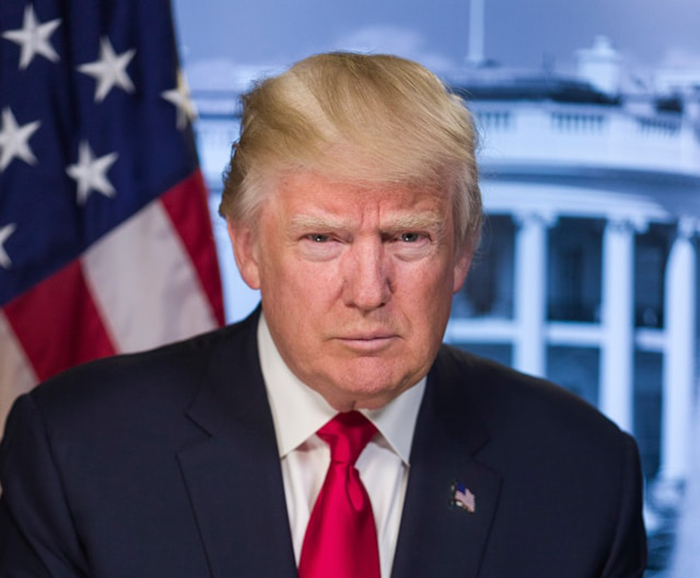U.S. President-elect Donald Trump’s recent appointments and stated energy goals reflect a decisive push to support fossil fuel production while sidelining climate-focused policies. Trump’s victory speech and subsequent cabinet nominees emphasize a broader strategy to reassert U.S. dominance in fossil fuels, through deregulation and expanded oil and gas development.
Analysts, however, warn that these moves could undermine both domestic environmental protections and global climate initiatives at a critical juncture.
During his victory speech, Trump championed the country’s fossil fuel reserves, declaring that the U.S. has more “liquid gold than any country in the world.” This rhetoric aligns with his campaign’s promise to reinstate a “drill baby drill” ethos, a stark contrast to the Biden administration’s emphasis on renewable energy.
Trump’s prioritization of fossil fuels comes as global temperatures rise to record levels, greenhouse gas emissions reach all-time highs, and scientific consensus accentuates the urgent need to transition away from carbon-intensive energy sources. The incoming president remains undaunted.
Zeldin as EPA nominee
Trump’s selection of Lee Zeldin as his nominee to head the Environmental Protection Agency (EPA) signals a significant shift in the agency’s direction, as AP reported. A former congressman with no direct environmental policy experience, Zeldin has committed to rolling back regulations to “restore U.S. energy dominance.”
While he has pledged to maintain access to clean air and water, his deregulatory approach and alignment with Trump’s fossil fuel priorities suggest a reduced emphasis on mitigating climate change.
Critics argue that such an agenda risks undermining the EPA’s mission at a time when climate impacts — rising sea levels, intensifying storms, and record-breaking heat waves — are increasingly evident.
Zeldin’s approach mirrors Trump’s broader strategy to dismantle federal climate initiatives. Proposals from Trump allies, such as Project 2025, include plans to defund the EPA’s office addressing pollution in vulnerable communities, reduce greenhouse gas monitoring, and weaken atmospheric research capabilities. These moves could have far-reaching implications for public health and climate science.
Plans to abandon global climate leadership
Trump’s return to the White House also raises concerns about the U.S.’s role in international climate efforts. During his first term, Trump withdrew the U.S. from the Paris Agreement, and experts fear a repeat exit could destabilize global momentum toward climate goals. The U.S. would only need a year to fully withdraw, giving the Trump administration three years to operate outside the framework of international accountability.
As world leaders convened at COP29 in Azerbaijan, there was an awareness that any U.S. commitments to action would be short-lived. Richard Klein of the Stockholm Environment Institute told the BBC, “The U.S. at this COP is not just a lame duck, it’s a dead duck.” Without U.S. leadership, countries like China may be less inclined to commit to ambitious climate actions, further complicating global efforts to curb emissions.
Resistance from states and the private sector
Despite Trump’s plans, analysts suggest his administration may face significant resistance from states, corporations, and market forces. Renewable energy technologies, including wind and solar, have seen dramatic cost reductions, making them increasingly competitive.
Many Republican-led states have benefited from Biden-era investments in clean energy, with some 85% of funds from the Inflation Reduction Act directed toward Republican districts. This creates a potential conflict between Trump’s fossil fuel agenda and local economic interests tied to renewable energy.
Private sector momentum also poses a challenge. As Mindy Lubber, CEO of Ceres, told NPR, businesses are driven by economic and reputational incentives to address climate risks.
“While our job hasn’t gotten easier, companies recognize the financial and material risks of ignoring climate change,” she said. However, Lubber warned that Trump’s rhetoric and policies could discourage companies from publicly promoting their sustainability initiatives, hindering broader progress across industries.
Short-term setbacks, long-term uncertainty
Although Trump’s policies are likely to stall federal climate action in the short term, the longer-term impact remains uncertain. Global clean energy investment has surged, with spending on renewable technologies now double that of coal, oil, and gas. Trump’s efforts to revive fossil fuels may encounter economic headwinds as markets increasingly favor low-carbon alternatives.
As Christiana Figueres, former UN climate chief, said to BBC, “The result of this election will be seen as a major blow to global climate action. But it cannot and will not halt the changes underway to decarbonize the economy.”
Still, environmental advocates worry that the loss of U.S. leadership could delay critical progress at a time when climate impacts are accelerating.














